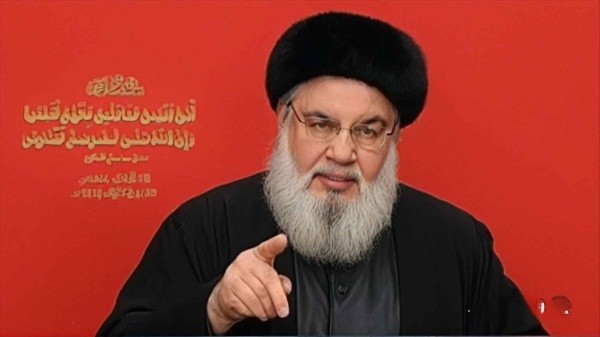Iran’s Plan to Strike Back Against the U.S.
Iran’s Military Preparations Following U.S. Attacks
Loading...

Iranian President Masoud Pezeshkian says the international community will not forget that the order for Israel’s terrorist act to assassinate Secretary General of the Lebanese Hezbollah resistance movement Sayyed Hassan Nasrallah was issued from New York.
In a significant statement, Iranian President Masoud Pezeshkian has asserted that the directive for Israel's recent assassination attempt on Sayyed Hassan Nasrallah, the Secretary General of Hezbollah, originated from New York. This claim comes in the wake of a devastating Israeli airstrike that reportedly resulted in the martyrdom of Nasrallah and other prominent figures of the resistance movement.
"Israeli Airstrikes and International Implications
On Friday, massive airstrikes targeted residential buildings in southern Beirut, coinciding with Israeli Prime Minister Benjamin Netanyahu's address at the 79th session of the United Nations General Assembly in New York. Hezbollah confirmed the tragic loss of its leader, emphasizing the gravity of the situation. In a message of condolence released on Saturday, President Pezeshkian condemned the attack, stating that the United States shares responsibility for the actions of the Israeli regime. He highlighted that such acts of aggression would not be forgotten by the international community.
Pezeshkian characterized the airstrikes in the Dahiyeh area of Beirut as a terrorist act, asserting that the martyrdom of Nasrallah would only serve to fortify the "tree of resistance." He praised Nasrallah as a symbol of resistance and pride for Muslims, noting that he had achieved his long-held aspiration of martyrdom. The Iranian president expressed that Nasrallah's bravery and relentless efforts against adversaries would continue to inspire Hezbollah, suggesting that the movement would emerge even stronger following this tragedy.
"The Broader Impact of Nasrallah’s Martyrdom
Iranian Foreign Minister Abbas Araghchi echoed Pezeshkian's sentiments, warning that Israel should be wary of the repercussions stemming from Nasrallah’s blood. He emphasized that the assassination of Hezbollah leaders is not a new tactic for Israel, but it will not halt the growth of the resistance movement. Araghchi expressed confidence that the sacrifices made by the martyrs of the resistance would pave the way for ultimate victory and the liberation of Holy al-Quds from what he termed "Zionist criminals."
The Iranian leadership has framed the recent events as a rallying call for unity among Muslims, with Ayatollah Seyyed Ali Khamenei condemning the Israeli attacks as indicative of the shortsightedness and misguided policies of Israeli officials. He urged all Muslims to stand in solidarity with the Lebanese people and Hezbollah, reinforcing the notion that the struggle against Israeli aggression is a collective responsibility.
"Conclusion: A Call for Resistance
The assassination of Sayyed Hassan Nasrallah marks a pivotal moment in the ongoing conflict between Israel and Hezbollah, with Iranian officials asserting that this act of violence will only serve to galvanize the resistance movement. The rhetoric from Iranian leaders suggests a deepening commitment to supporting Hezbollah and a call for broader Muslim unity against perceived threats from Israel. As tensions escalate, the implications of Nasrallah's martyrdom are likely to resonate throughout the region, potentially leading to increased resistance efforts and a reevaluation of strategies among various factions opposed to Israeli policies.
BMM - MBA
Iran’s Military Preparations Following U.S. Attacks
Troops remain in five strategic locations, raising fears of renewed tensions and long-term occupation.
Opposition forces have taken control of the capital after a significant offensive. Here is how it unravelled.
